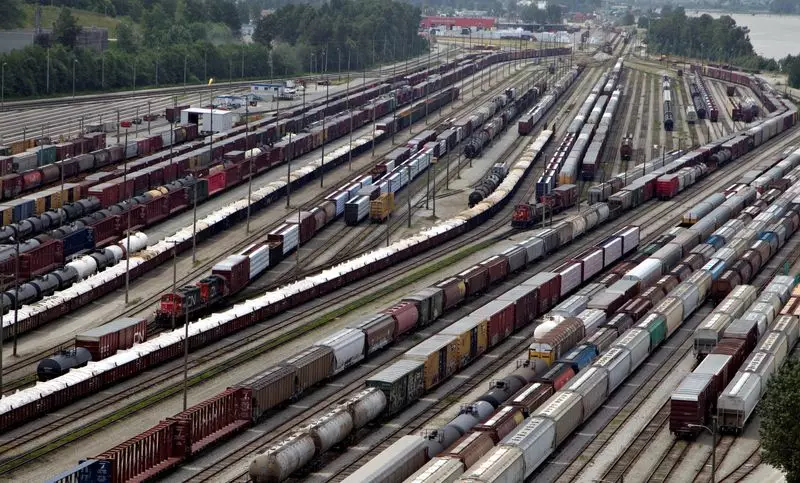Canada’s freight rail network is on the verge of a major crisis this week as the country’s two largest railroad operators have issued lockout notices to the Teamsters union representing almost 10,000 workers. This impending halt in operations could have significant economic ramifications, affecting the shipment of various goods and disrupting rail trade across North America.
If last-minute deals are not reached, Canadian National Railway (CN) and Canadian Pacific (CP) Kansas City plan to lock out workers starting from Thursday, marking the first simultaneous labor stoppage Canada has faced at the railroad firms. The stoppages have the potential to cripple the shipment of food grains, beans, potash, coal, timber, petroleum products, chemicals, and cars, which are vital components of Canada’s exports. In addition to billions of dollars in economic damage, these stoppages could have a ripple effect on rail trade across North America.
The disputes between the railroad operators and the Teamsters union center on various issues, including forced relocations, safety concerns, and compliance with government-mandated rules. CN is accused of wanting to implement a forced relocation provision that would require workers to move across Canada for extended periods to address labor shortages. CPKC is facing criticism for allegedly wanting to strip safety-critical fatigue provisions from the collective agreement, potentially increasing the risk of accidents.
The Teamsters union has issued a 72-hour strike notice to CPKC and instructed its members to treat CN’s lockout notice as equivalent to being on strike. The union is taking a stand to defend the rights and safety of its members, highlighting the importance of fair labor practices and safety regulations in the railway industry.
While CN and CPKC have stated that their operations outside of Canada will continue during the lockout, the disruptions in Canada could still have far-reaching effects. Both rail operators’ networks connect with key U.S. rail and shipping hubs such as Chicago, New Orleans, Minneapolis, and Memphis. CPKC’s network extends even further, reaching ports on both the east and west coasts of Mexico, emphasizing the interconnected nature of rail trade across North America.
Despite pleas from business groups for government intervention, the federal Liberal government has expressed a desire for the companies and the unions to resolve their differences through negotiations. The government’s decision not to intervene raises questions about the balance between business interests, labor rights, and overall economic stability during times of labor disputes.
The potential economic impact of the impending rail network lockout in Canada is significant, with a wide range of goods and industries at risk of disruption. The labor disputes between the railroad operators and the Teamsters union highlight larger issues related to labor rights, safety regulations, and the interconnected nature of rail trade across North America. The outcome of these negotiations will not only impact the immediate stakeholders involved but also have broader implications for the economy and trade relationships in the region.

